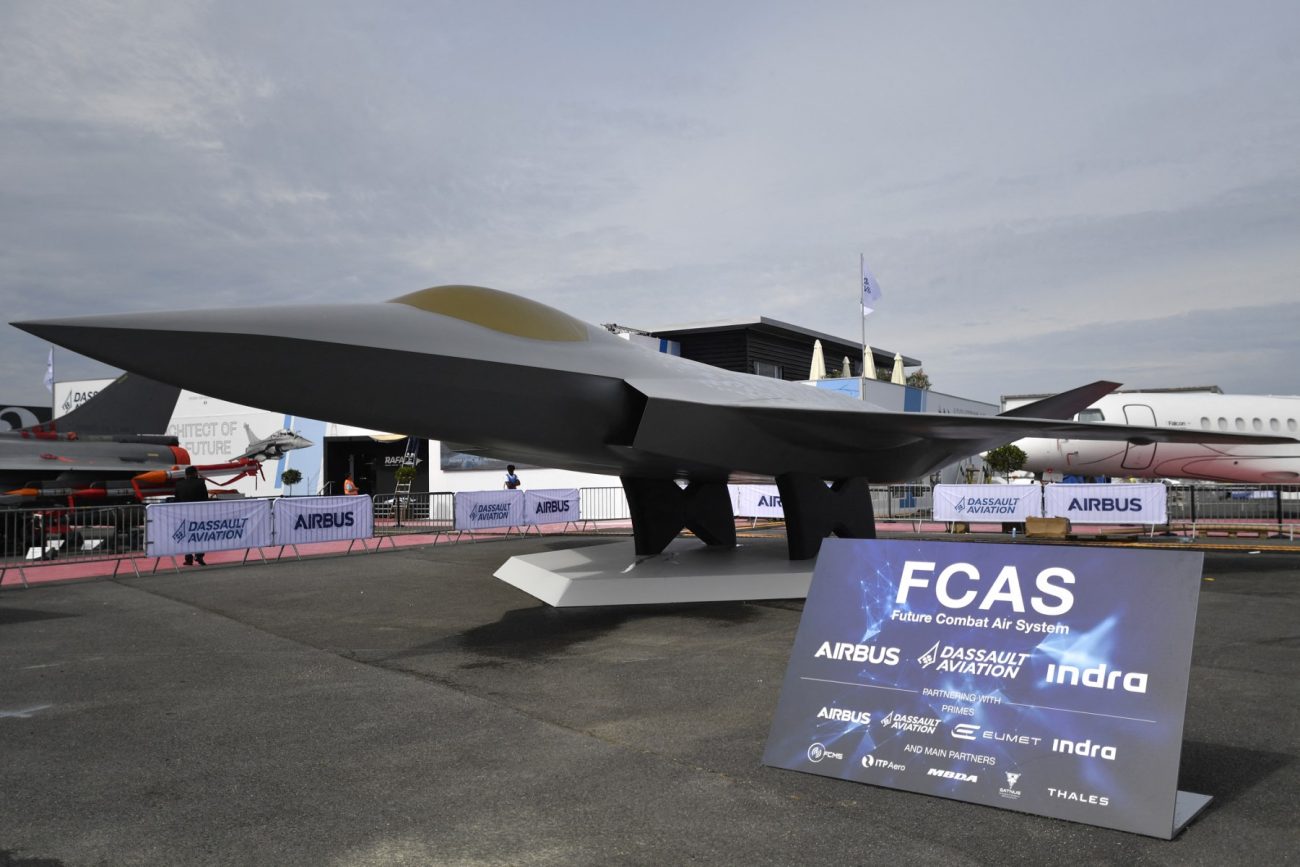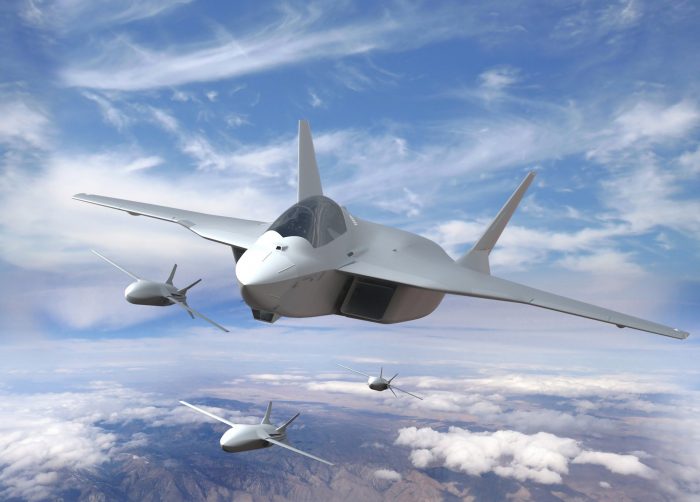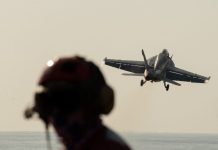Days after committing to seek full-partner status in the Future Combat Air System (FCAS) sixth-generation aircraft program, Belgium has taken a sharp U-turn, notifying that it is “reconsidering” its position due to the arrogance displayed by Dassault Aviation CEO Eric Trappier.
“The government will evaluate its position in the FCAS project. As a founding father of NATO and the EU, a loyal ally, and headquarters holder, we have no lessons to learn from arrogant industrialists,” Theo Francken, the Minister of Defense and Trade, said in a post on the social media site X.
While the post did not directly name anybody, it is understood to be a reference to the recent remarks made by Dassault Aviation chief Eric Trappier.
Speaking at a quarterly financial results event of Dassault Aviation, Trappier said that if Belgium purchases American-made F-35 fighter jets, it will not be able to join France, Germany, and Spain in the development of Europe’s FCAS program.
He stated that a major criterion for joining the program is a commitment to purchasing locally produced equipment.
De regering zal haar positie in het FCAS project evalueren. Als founding father van de NAVO en de EU, loyale bondgenoot en hoofdkwartierhouder hebben we geen lessen te krijgen van arrogante industriëlen.
— Theo Francken (@FranckenTheo) July 24, 2025
“If [Belgium] gives up the idea of buying F-35s, they’d be welcome; if they are not, then that’s making a monkey out of us,” Trappier said.
Belgium’s proposal to seek full FCAS membership, according to Trappier, is illogical because the Belgians would like to take advantage of the jobs generated by the program,” but will buy from the US.”
Belgium and Trappier have long been at odds over the Belgian government’s decision to purchase F-35s over a European aircraft, such as the Rafale or Eurofighter Typhoon. The Dassault CEO publicly clashed with former Belgian Defense Minister Ludivine Dedonder in 2023 and resisted Belgium’s request to become an observer.
EU Founding Father Shunned By Dassault CEO
Belgium became an observer in the FCAS program in April 2024, with aspirations to join it as a stakeholder.
“This observer status will allow us to closely follow the development of this program, which is crucial for the future of Belgian and, above all, European defense, and to make an informed decision on our possible participation in the subsequent development phases,” the Belgian Minister of Defense had said at the time.
The minister stated that Belgium was determined to join the FCAS/SCAF effort as soon as possible, with reports suggesting that it planned to enter the program as a full member before the onset of Phase 2 in the FCAS initiative. It has even allocated USD 351 million to enable the nation’s full involvement in the next development phase, which is set to begin in 2026.
In line with that goal, the government published the ‘Strategic Vision 2025’ report on July 18, 2025, which stated that Belgium would ask the other three members of the consortium — France, Germany, and Spain — to admit it as a full member ‘as soon as possible.’
Belgium has maintained that it views participation in FCAS, Europe’s most extensive defense project, as a means to contribute to Europe’s strategic autonomy and technological independence.
The program is viewed as critical for enhancing Europe’s defense capabilities, independent of non-European systems. Belgian Defense Minister Dedonder earlier emphasized FCAS as a “unique opportunity for Europe” to promote innovation in defense, aligning with Belgium’s broader commitment to European security.
The country is the founding father of the European Union and NATO, as mentioned by Dedonder in his post on X.
Paul-Henri Spaak, a Belgian statesman, played a pivotal role in shaping European integration. He was instrumental in the creation of the 1957 Treaty of Rome, which established the European Economic Community (EEC), a cornerstone of the modern EU. Spaak also played a key role in the negotiations that led to the signing of the North Atlantic Treaty on April 4, 1949.
This is perhaps why the Belgian government appears to have been offended by Trappier’s arrogance and his positioning of himself and his company as the undisputed leader of the FCAS and European self-sufficiency and pride.
Neither Germany nor Spain has publicly opposed Belgium’s participation in the program, despite Belgium having chosen the F-35 over the Eurofighter Typhoon (jointly built by the UK, Germany, Spain, and Italy), which was aggressively marketed to it.
Moreover, Trappier’s argument may not hold water, especially as Germany has also purchased the American F-35 stealth fighter jets. Going by the Dassault CEO’s rationale, even Berlin should not be part of the FCAS program.
The public spat between Dassault’s chief and an FCAS observer has once again highlighted the numerous cracks that exist within this troubled grouping.

Dassault Chief On Collision Course
France and Germany announced their collaboration on the development of next-generation combat aircraft under the FCAS program in 2018.
Spain subsequently joined them in 2019. Dassault is the prime contractor for the New Generation Fighter (NGF), which is at the core of the FCAS program. Airbus serves as the main partner on behalf of Germany and Spain.
Since its inception, the FCAS program has faced several challenges, including disagreements over its design, budgeting, intellectual property rights, industrial work-sharing, and operational priorities. The three stakeholders have attempted to make the arrangement work, but differences continue to arise, causing delays in development and pushing its fielding date back by nearly a decade.
The program is undergoing an extremely turbulent period due to differences over the workload and distribution of roles, primarily regarding the NGF, between Dassault and Airbus.
The program is divided into seven technical “pillars,” each headed by a different business and including contributions from subcontractors.
As previously reported, Airbus is responsible for the “loyal wingman” remote-carrier drone design, new cloud capabilities, and stealth technology, while Dassault is responsible for the new fighter plane. Safran is developing a new jet engine for the fighter, while Spain’s Indra is in charge of the sensor systems.
Trappier maintains that only his company has the necessary skills to develop the NGF, dismissing the idea of sharing work on that project. He went so far as to say in a June 2025 Bloomberg interview that he believes a partnership centered on sharing work might result in a less-than-ideal technology solution.
He indicated that Dassault can do it alone.

With required expertise and decades of experience in designing end-to-end fighter jets, with little to no outside collaboration, the Dassault CEO has been reluctant to cede space to German and Spanish defense majors.
In contrast, Germany, represented by Airbus, has been unwilling to allow Dassault to take the lion’s share, which would benefit the French contractor and leave little for the German industry.
Currently, the program is in Phase 1B, during which industry partners are working on the research, design, and development of the NGF, encompassing extensive work on propulsion, sensors, and communication systems. Once the development phase is complete, the program will enter Phase 2, which will involve creating a demonstrator.
According to previous reports, Phase 2 is scheduled to be announced in 2026, with the first flight of the demonstrator planned for 2029. However, this can happen only if the two contractors can iron out their differences.
A recent report in a German publication stated that France had informed Germany that it intends to take 80 percent of the work share. Meanwhile, Reuters quoted German lawmaker Christoph Schmid from the Social Democratic Party (SPD), who said it would be the last “nail in the coffin” for the project if the French press forward with their demand.
Despite the prevailing differences between the contractors, both France and Germany are trying to work out an arrangement that suits everyone involved. On July 23, 2025, German Chancellor Friedrich Merz and French President Emmanuel Macron discussed the next-generation Future Combat Air System, which is known to have been discussed, and asked their defense ministers to present a solution by the end of next month.
It remains to be seen whether the officials can arrive at an amicable solution within four weeks, a task they have been unable to accomplish in four months.
There is currently no information on whether Belgium’s full-scale participation was discussed in the talks, but for now, it appears that Brussels may stay out of this chaotic equation.
- Contact the author at sakshi.tiwari9555 (at) gmail.com
- Follow EurAsian Times on Google News




